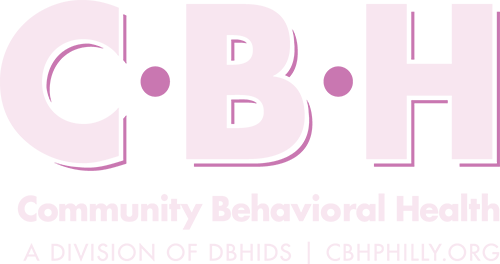CBH Helps Lead the Way in Reducing Health Disparities for Pregnant Individuals Managing Substance Use Disorders
The longstanding maternal health crisis continues to endanger lives across the U.S., particularly among communities of color and other underserved populations.
According to a 2022 report by the Centers for Disease Control and Prevention (CDC), the U.S. maternal mortality rate is 32.9 deaths per 100,000 births, with Black patients experiencing higher rates compared to White populations. Research further shows that Black obstetrical patients report feeling silenced by physicians and receiving lower-quality treatment compared to White patients, leading to adverse pregnancy and health outcomes. These treatment disparities are even more prevalent among Medicaid recipients.
Racial disparities have also been shown to amplify existing barriers to essential perinatal care for people with substance use disorder (SUD). A 2024 report by the National Task Force on Maternal Mental Health found that while SUD and other behavioral health conditions are the leading cause of pregnancy-related deaths in the U.S; only 31% of Black pregnant and postpartum individuals receive medication-assisted treatment for opioid use disorder compared to 53-57% of White and Hispanic individuals.
To address these disparities and mitigate longstanding care barriers faced by pregnant and post-partum individuals with SUD, CBH’s Complex Care Team launched the Mommy’s Helping Hands (MHH) initiative in 2018.
“Mommy’s Helping Hands connects pregnant and postpartum individuals to essential resources that address the social and environmental factors influencing their unique behavioral health needs,” said CBH CEO Donna Bailey.
MHH utilizes a person-centered, all-inclusive approach to assist pregnant and post-partum CBH members aged 18 years or older with a documented history of SUD in accessing comprehensive whole-person healthcare services and support. This may include coordinating perinatal care with treatment teams, collaborating with physical health managed-care organizations (MCOs) to ensure integrated treatment, and providing education on behavioral health conditions, treatments, and medications.
The program also empowers individuals to be active decision-makers throughout their pregnancy journey, promoting meaningful connections for populations whose complex behavioral health needs pose unique challenges to accessing and maintaining quality treatment and community support.
Additionally, MHH aims to reduce high and costly psychiatric inpatient hospitalization and substance use rehabilitation readmission rates among individuals with SUD, by facilitating their access to recovery-oriented, community-based SUD treatment. Through reducing readmissions, MHH seeks to support members’ long-term recovery in their community while also decreasing preventative healthcare costs.
The program welcomes both external referrals and member self-referrals. Following a brief chart review to confirm eligibility and contact information, MHH Care Managers contact prospective members by phone and mail to inform them about their program eligibility, the benefits it offers, and how to enroll.
Once enrolled, members undergo an assessment to determine their care needs and receive an individualized case management plan. These services are conducted in person, via Zoom, by telephone, or by email, to ensure flexibility and meet members where they are.
MHH also prioritizes maximizing the potential of pregnant and parenting individuals in recovery in a compassionate, stigma-free environment. Goal setting is central to the program’s success, with MHH Care Managers working closely with members to develop personalized care plan goals tailored to their unique needs.
To address Social Determinants of Health (SDOH), Care Managers connect members enrolled in MHH with vital community resources that can assist with obtaining a driver’s license, expunging a criminal record, accessing childcare services, securing infant formula and diapers, and earning a GED or diploma. By facilitating these connections, MHH empowers members to overcome barriers and achieve their personal goals, promoting personal growth, independence, and success beyond the program.
CBH understands that addressing maternal care issues in Philadelphia requires access to high-quality obstetric services that respond to the complex behavioral, other health, and social needs that arise before, during, and after pregnancy. Addressing these conditions is critical for improving maternal health and reducing morbidity and mortality rates. Through MHH, CBH’s Complex Care Team empowers individuals on their recovery path to reclaim their health, offering hope, support, and the necessary tools to overcome barriers and prioritize the mother-child relationship.






